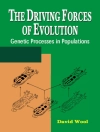The "intelligence" of traditional artificial intelligence systems is notoriously narrow and inflexible–incapable of adapting to the constantly changing circumstances of the real world. Although traditional artificial intelligence systems can be successful in narrowly prescribed domains, they are inappropriate for dynamic, complex domains, such as autonomous robot navigation.**This book proposes an alternative methodology for designing intelligent systems based on a model of intelligence as adaptive behavior. The author describes an experiment in computational neuroethology–the computer modeling of neuronal control of behavior–in which the nervous system for an artificial insect is modeled. The experiment demonstrates that simple, complete intelligent agents are able to cope with complex, dynamic environments–suggesting that adaptive models of intelligence, based on biological bases of adaptive behavior, may prove to be very useful in the design of intelligent, autonomous systems. – Provides a lucid critique of traditional artificial intelligence research programs- Presents new methodology for the construction autonomous agents, which has implications for mobile robotics- Of interest to researchers in a variety of fields: artificial intelligence, neural networks, robotics, cognitive science, and neuroscience
B. Chandrasekaran
Intelligence as Adaptive Behavior [PDF ebook]
An Experiment in Computational Neuroethology
Intelligence as Adaptive Behavior [PDF ebook]
An Experiment in Computational Neuroethology
购买此电子书可免费获赠一本!
语言 英语 ● 格式 PDF ● ISBN 9781483288123 ● 编辑 B. Chandrasekaran ● 出版者 Elsevier Science ● 发布时间 2013 ● 下载 3 时 ● 货币 EUR ● ID 5736687 ● 复制保护 Adobe DRM
需要具备DRM功能的电子书阅读器












